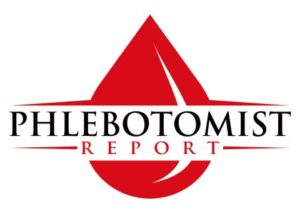In today’s fast-paced world, health is wealth, and one of the key components of maintaining good health is regular blood testing. Whether it’s for routine check-ups, monitoring chronic conditions, or investigating specific health concerns, having accurate and reliable blood test results is crucial.
However, with so many options available, selecting a reputable laboratory or phlebotomy service can feel like navigating a maze. In this guide, we’ll walk you through the process and provide you with some tips to make an informed decision.
1. Understanding Your Needs
Before diving into the sea of options, it’s essential to understand your specific needs. Are you looking for a comprehensive blood panel or a specific test? Do you need home-based services or are you willing to visit a laboratory? Answering these questions will help narrow down your search and ensure you find a provider that aligns with what you want to do.
2. Credentials and Accreditation
One of the first things to check when evaluating a laboratory or phlebotomy service is their credentials and accreditation. Look for certifications from recognized organizations such as the Clinical Laboratory Improvement Amendments (CLIA) or accreditation from bodies like the College of American Pathologists (CAP), Occupational Safety and Health Administration (OSHA), or World Health Organization (WHO). These certifications or accreditations indicate that the facility meets stringent quality standards and undergoes regular inspections.
3. Quality of Service
The quality of service offered by a laboratory or phlebotomy service can significantly impact your overall experience. Word of mouth can be invaluable when it comes to choosing a service provider. Reach out to friends, family, or healthcare professionals for recommendations based on their experiences. Additionally, search online reviews and testimonials to gauge the reputation of potential laboratories or phlebotomy services. Pay attention to feedback regarding timeliness, accuracy of results, and overall customer satisfaction.
4. Expertise and Experience
When it comes to your health, you want to entrust your blood tests to experienced professionals. Look for laboratories or phlebotomy services with a track record of expertise in the specific tests you require. Experienced technicians and medical staff are more likely to ensure accurate sample collection and precise analysis, minimizing the risk of errors.
5. Range of Tests Offered
The breadth of tests offered by a laboratory or phlebotomy service is another crucial factor to consider. Go for providers that offer a comprehensive range of tests, including standard panels for general health screening, as well as specialized tests for specific conditions or concerns. Having access to a diverse menu of tests ensures that you can address all your health needs in one place.
6. Technology and Equipment
Advancements in technology have revolutionized the field of laboratory testing, enabling faster, more accurate results. Inquire about the technology and equipment used by the laboratory, ensuring they employ state-of-the-art instruments and methodologies. Modern equipment not only enhances the accuracy of results but also streamlines the testing process for greater efficiency.
7. Sample Collection Process
The sample collection process plays a crucial role in the accuracy of blood test results. Whether you’re visiting a laboratory or opting for a home-based service, ensure that the sample collection procedures adhere to strict protocols. Proper training and adherence to best practices by phlebotomists and technicians are essential for minimizing errors and ensuring the integrity of samples.
8. Privacy and Confidentiality
Privacy and confidentiality are important when it comes to medical testing. Ensure that the laboratory or phlebotomy service follows stringent protocols to protect your personal information and test results. Look for providers that adhere to HIPAA regulations and have robust security measures in place to safeguard sensitive data.
9. Cost and Insurance Coverage
While quality should be your primary consideration, cost is also an important factor to weigh. Compare the prices of different providers, keeping in mind that exceptionally low prices may indicate subpar quality. Additionally, check whether the laboratory or phlebotomy service accepts your insurance plan, as this can significantly reduce out-of-pocket expenses.
10. Seek Transparent Pricing and Billing Practices
Transparent pricing and billing practices are essential for avoiding surprises when the bill arrives. Request a detailed breakdown of costs upfront, including any fees for additional services or expedited processing. Beware of hidden charges or ambiguous pricing structures, and opt for providers that prioritize transparency and honesty in their billing practices.
11. Customer Support and Accessibility
Consider the level of customer support and accessibility offered by the provider. Choose a laboratory or phlebotomy service that is responsive to inquiries, provides clear communication throughout the testing process, and offers convenient channels like an email, an online chat or a phone number for reaching customer support in case of any issues or concerns.
12. Seek Recommendations
Don’t hesitate to seek recommendations from healthcare professionals or trusted individuals you know. Your primary care physician or specialist may be able to recommend a reputable laboratory or phlebotomy service based on your specific needs. Similarly, friends or family members who have undergone blood testing may offer valuable insights and recommendations.
13. Trust Your Instincts
Last but not least, trust your instincts when making your final decision. If something doesn’t feel right or if you have lingering doubts about a particular provider, don’t hesitate to explore other options. Your health and peace of mind are important, so choose a laboratory or phlebotomy service that instills confidence and meets your expectations.
In conclusion, selecting a reputable laboratory or phlebotomy service for blood testing requires careful consideration of various factors, including credentials, quality of service, expertise, range of tests offered, technology, sample collection process, privacy, cost, and customer support. By conducting thorough research and asking the right questions, you can ensure that you entrust your health to a provider that meets your needs and delivers accurate, reliable results. Don’t rush the decision; your health is worth the effort!
